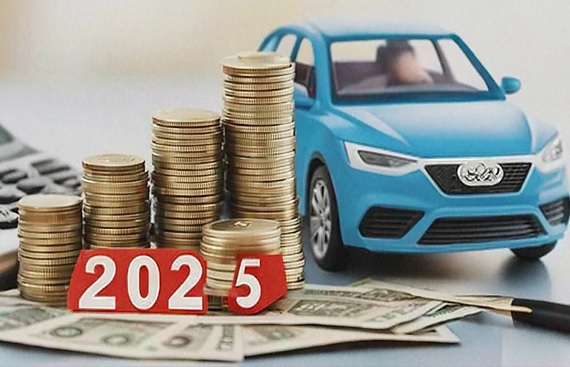Auto Sector Eyes GST Reforms, Charging Infra Boost in Budget 2025
By
siliconindia | Friday, 31 January 2025, 05:55 Hrs

Ahead of the Union Budget 2025 scheduled to be announced by Finance Minister Nirmala Sitharaman on Feb 11, 2025, the automotive sector expects to see policy measures that would speed up sustainable mobility, spur domestic manufacturing and further enhance India's global competitiveness. Industry leaders across the board are suggesting continuous support in EV adoption, tax reforms, development of infrastructure, and investments in R&D.
Santosh Iyer, MD & CEO at Mercedes-Benz India, emphasized the need for forward-looking measures to maintain economic growth. "Continued push for BEV (Battery Electric Vehicle) adoption by pursuing the existing incentives, infrastructure development, and R&D initiatives will be crucial in accelerating India's transition to green mobility, positioning us as a key player in the global BEV value chain", he said. Iyer also suggested that India be integrated into the global supply chain by reducing trade barriers and simplifying regulatory frameworks.
Nagesh Basavanhalli, Vice Chairman, Greaves Cotton Limited, also shared similar thoughts, citing fuel-agnostic technologies and sustainability. "Standardizing charging systems and investing in infrastructure with petroleum and energy companies are critical steps to accelerate EV adoption. Encouraging R&D investments and strengthening the domestic supply chain will reduce import dependency and foster innovation", he noted.
Tax Reforms and Incentives for EVs
Meanwhile, Country CEO & MD of Renault India, Venkatram Mamillapalle said tax reforms should be given top priority. "We expect simplification of taxes on new energy vehicles and measures that uplift the middle-income group, enhancing liquidity and consumer sentiment", he said, hoping for initiatives aligned with the Viksit Bharat 2047 vision.
Piyush Arora, MD & CEO, Skoda Auto Volkswagen India, said that better road infrastructure and ease of doing business are critical. "Better charging infrastructure for the EV ecosystem and budgetary allocations for road safety will help the auto industry grow. Budgetary measures to boost disposable income will also be necessary to sustain robust demand", he said.
The industry is also seeking investments in skill development. "Encouraging ER&D (Engineering Research & Development) and strengthening the talent pipeline will position India as an innovation hub", said Mamillapalle of Renault India.
Shreyas Shibulal, Founder & CEO of Numeros Motors, called for a revision in the current tax structure. "Reducing GST on manufacturing inputs and lowering the 28% tax rate on EVs will significantly reduce production costs, making EVs more affordable for consumers", he stated. He also underscored the importance of expanding charging networks to ease range anxiety.
Atul Greentech Pvt. Ltd. MD Divya Chandra emphasized increased incentives under the FAME scheme and reduction of GST on EV components to 5%. "Accelerating rollout of 20 lakh EV charging stations by 2030 and tax exemptions to buyers can considerably increase adoption," she suggested.
Naoya Nishimura, Musashi India & Africa Region CEO, said that this scheme's momentum needs to be continued. "We are hopeful to witness faster development of EV charging infrastructure, support to high-range battery technology, and localization of components. These would help solidify India's position as a leader in automotive innovation and manufacturing," he said.
Ajinkya Firodia, Vice Chairman at Kinetic Engineering Ltd., said the growth potential of the EV industry is enormous. "With the EV market targeting to reach Rs 20 lakh crore by 2030 and creating five crore jobs, performance-linked incentives for battery and auto-component manufacturing will be a catalyst in making EVs more affordable and accessible", he said.
